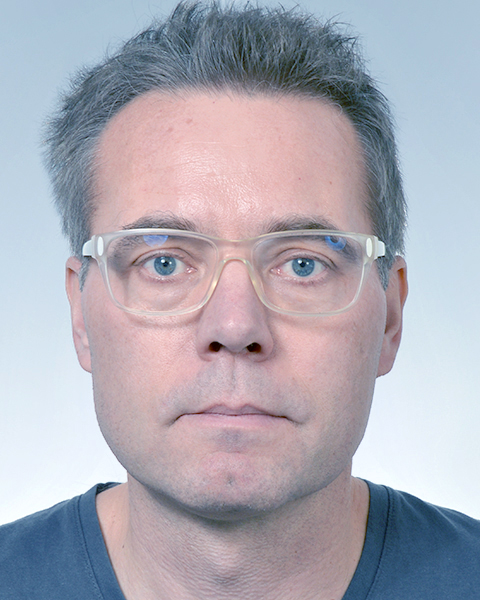
Clinical Psychology and Psychotherapy, Institute of Psychology, Dept. of Psychology and Movement Sciences, University of Hamburg
Contact
Tel.: +49 40 42838-5360
Mail: tania.lincoln@uni-hamburg.de

Dept. of Psychiatry and Psychotherapy, Centre for Psychosocial Medicine, University Medical Centre Hamburg-Eppendorf
Contact
Tel.: +49 (0) 40 7410 – 56565
Mail: moritz@uke.de
Contact
Tel.: +49 (0) 40 7410 – 52205
Mail: j.gallinat@uke.de
Contact
Tel.: +49 (0) 40 7410 – 56565
Mail: moritz@uke.de

Dept. of Psychosomatic Medicine and Psychotherapy, Centre for Internal Medicine & Centre for Psychosocial Medicine, University Clinical Centre Hamburg-Eppendorf
Contact
Tel.: +49 (0) 40 7410 – 59733
Mail: b.loewe@uke.de

Dept. of Medical Psychology, Centre for Psychosocial Medicine, University Medical Centre Hamburg-Eppendorf
Contact
Tel.: +49 (0) 40 7410 – 52978
Mail: m.haerter@uke.de
Contact
Tel.: +49 (0) 40 7410 – 59733
Mail: b.loewe@uke.de
Contact
Tel.: +49 (0) 40 7410 – 52978
Mail: m.haerter@uke.de
This research consortium is dedicated to the following aims:
T. Lincoln is known for her individually tailored, symptom-focused approach in psychotherapeutic interventions for psychotic disorders, such as her Emotion-Focused Cognitive Behavioural Therapy (CBT) for Delusions, targeting emotion regulation problems that have been identified as target mechanism in symptom formation and persistence. In addition, she and her research team are experts in the field of CBT for negative symptoms and are developing and employing according interventions. As scientific head of the University Outpatient Clinic (800 cases/ year of which 25% are cases with diagnosed psychotic disorder) and Psychotherapeutic Training Institute at the University of Hamburg, she combines research with direct evaluation and practice of CBT for psychosis (practitioner-scientist-model). T. Lincoln is well connected with other top-ranking researchers in the field of psychotherapy (for psychosis), and a member of according networks to promote better treatments for affected individuals worldwide.
S. Moritz has developed several interventions for individuals with psychosis, severe OCD, or depression. His research focuses on ameliorating cognitive biases and repetitive, dysfunctional thought patterns as proposed causal target mechanisms to tackle often treatment-resistant symptoms (e.g. delusions, obsessive-compulsive behaviour patterns and reasoning biases). He is the inventor of the Metacognitive Training (MCT), which is available for different indications and settings (inpatient, ambulant, online, guided self-help, smartphone application), and has been extensively evaluated for different mental disorders. MCT has been translated into 37 languages, reflecting its successful, wide international reception and dissemination. MCT is now listed in several national treatment guidelines as recommended add-on intervention and has been disseminated internationally as well.
M. Härter and B. Löwe both represent state-of-the-art treatment of comorbid mental and somatic illness, both providing liaison psychiatry and psychosomatics at their respective clinics; the Dept. of Medical Psychology and the Institute and Outpatients Clinic of Psychosomatic Medicine and Psychotherapy which are delivering several thousands of psychotherapeutic treatments per year. They have developed and evaluated numerous patient-centred assessments for different mental illnesses and promote research and care implementation for severe and chronic depression (B. Löwe, M. Härter), anorexia nervosa (e.g. ANTOP trial), and somatic symptom and related disorders (SSD; B. Löwe). B. Löwe spearheaded the DSM-5 diagnostic criteria for SSD and developed international criteria and assessments for mental illness which are considered gold-standard, such as the Somatic Symptom Scale 8 (SSS-8), or Generalized Anxiety Disorder-7 scale (GAD-7).
This task-force of researchers is planning to further expand in order to cover a broad range of somatic comorbidities in serious mental illness, involving e.g. UKE researcher Martin Scherer who represents a broader network of general health practitioners and psychotherapists in the metropolitan area of Hamburg. Our vision is to create a denser, and strongly cooperative, interdisciplinary support network for individuals with serious or common but under-served mental illness, which facilitates the communication between different involved healthcare providers and assures an improved individual case management.
S. Moritz is funded by the DFG for several projects, e.g. on the evaluation of internet-based cognitive behavioral self-help treatments for persecutory ideation and auditory verbal hallucinations (DFG; Mo 969/17-1); Swiss National Fonds (SNF).
RELATE – RCT study evaluating the effectiveness of relating therapy for distressing verbal hallucinations. This is a DFG-funded project by T. Lincoln. In this multicentre-trial, involving national partners in Leipzig and Bremen, Relating Therapy (RT) is evaluated concerning its acceptance and effectiveness. RT aims at changing the relationship between the voice hearer and the voice (e.g. perceived inferiority and helplessness vs. empowerment and assertiveness) in order to ameliorate distress and reduce control evoked by the voice(s).
International Consortium of Hallucinations Research. T. Lincoln is involved in several projects, publications, and public work of the Consortium in order to improve and promote targeted psychotherapy for individuals suffering from hallucinations worldwide.
https://hallucinationconsortium.org/
Veränderungsmechanisemen psychotischer Störungen: Die Lücke zwischen Symptomentstehung und Interventionen im Alltagskontext überbrücken – [mechanisms of change in psychotic disorders: bridging the gap between symptom emergence and daily-life interventions]. This is a cooperative project-network, involving partners at ZI Mannheim, Universities of Gießen, Erlangen-Nürnberg, Bochum, and Groningen (NL), headed by T. Lincoln’s research group (PostDoc Annika Clamor). The project is funded by the German Research Foundation (DFG).
GET.FEEDBACK. This is a cooperation project (randomized controlled trial; incl. University Clinical Centres of Tübingen, Heidelberg, Jena, and München) with PI B. Löwe, which evaluates the effectiveness of targeted feedback after depression screening in primary care.
https://clinicaltrials.gov/ct2/show/NCT03988985
ETUDE- Innovative Training Network (ITN) – Encompassing training in functional disorders across Europe: research coordinated by B. Löwe, with 11 European partners, aims at implementing therapeutic standards and according training for diagnosis and treatment of functional disorders.
https://cordis.europa.eu/project/id/956673